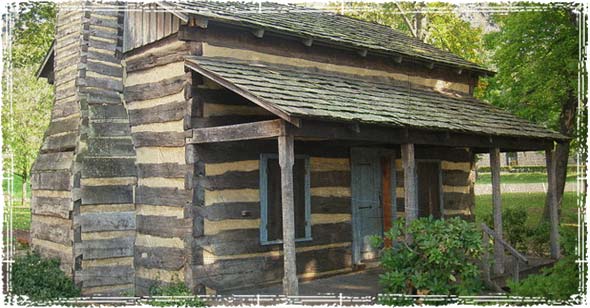How do you go off the grid? This is probably one of the top questions I receive, but the answer to that question isn’t always that easy, and even the term “going off the grid” can mean a million different things to a million different people.

If you are planning on completely cutting yourself off from the grid, then you need to consider what that really means.
Living off the grid means:
- Disconnecting from the electric and communication grid.
- Having a way to get water that does not rely on the municipal water supply.
- Having to deal with your own waste and sewage.
- Being able to heat and cool your home without being hooked into natural gas lines.
- Dealing with local zoning laws and legal issues.
You also need to understand that this is a huge lifestyle change.
Let’s face it; most people are not ready to live off the grid. The average American household uses over 8,900 kilowatt-hours of electricity and somewhere around 144,000 gallons of water each and every year. If you’re planning on living the same lifestyle that you’re currently living, you’re probably not ready to go off the grid – unless you have an unlimited amount of money to spend on completely retrofitting or replacing everything in your home with off-grid alternatives.
While living off the grid might not be possible for everyone, more and more Americans are choosing to unplug. In fact, a couple of years back, Home Power magazine estimated that over 180,000 homes in the U.S. were completely generating their own power.
So what does it mean to truly live off the grid?
Well, it’s not quite as simple as running a couple of light bulbs through a solar panel. To truly say you are living off the grid, you need to find a way to generate your own power, water, heat, and yes even things like your cable TV and internet.
So how do start to unplug?
Slow and steady wins the race. While pulling the plug may seem like a pipe dream, there a few things you can do while you wait for your earthship to be built. Most of us waste more than we actually use; being mindful of how you use your resources is the first step towards energy independence.
- Turn it Off – Sounds simple, but simply remembering to turn off your computers, lights, and other electrical items can dramatically reduce the amount of power you use.
- Use Power Strips – Turning it off doesn’t necessarily mean it’s really off. Did you know that a lot of the electrical gadgets in your house are probably still using power even when they are turned off? By plugging them into a power strip you can cut off their power supply by simply flipping a switch.
- Pull water from thin Air – Believe it or not, you can actually generate fresh drinking water from the air in your house. Check out this cool piece of technology that produces water from the humidity in the air. The Atmospheric Water Solutions G2C Aquaboy Atmospheric Water Generator
How to find the right Off-Grid Land:
Because of zoning issues, and the fact that more urban areas area cracking down or even making off-grid living illegal within the city, most people are going to have to look for at least a semi-rural piece of land. When it comes to finding that piece of land, there are a number of considerations that you need to be aware of.
- Access to emergency services is something you need to investigate before choosing a piece of land.
- Investigating possible dangers located near your land is something you can’t take lightly.
- Understanding zoning issues, building laws, and the legality of living without being plugged into the local grid.
For more information on how to find the right piece of property, check out our article on how to safely buy rural land.
What about internet access?
Yes, believe it or not, you can have the internet and still technically live off the grid. It’s not going to be easy, and it is going to cost some money to get started, but it is possible.
From running your internet connection through a simple cell phone connection to setting up your own WIFI hotspot or satellite connection, there are a number of ways to get online. To find out what options you have, check out our article on Off-Grid Internet Access.
Prepping Considerations when Living Off the Grid:
Since one of the primary goals of this site is helping people become better prepared, and since a lot of preparedness minded people are often the ones who are looking to cut their ties to the grid, preparedness is a big factor when building this type of property.
- The further you can get away from a major city, the better off you’ll be during a major collapse or SHTF situation. (S*&t Hits The Fan)
- A good reliable water source is one of the most important considerations when selecting any piece of land to build on.
- You need to find an area that lends itself to the self-reliant lifestyle. Your land needs to be able to grow food, give you the ability to raise livestock, and it needs to be in a climate that allows you to take advantage or the local resources throughout the year.
Comments
Post a Comment